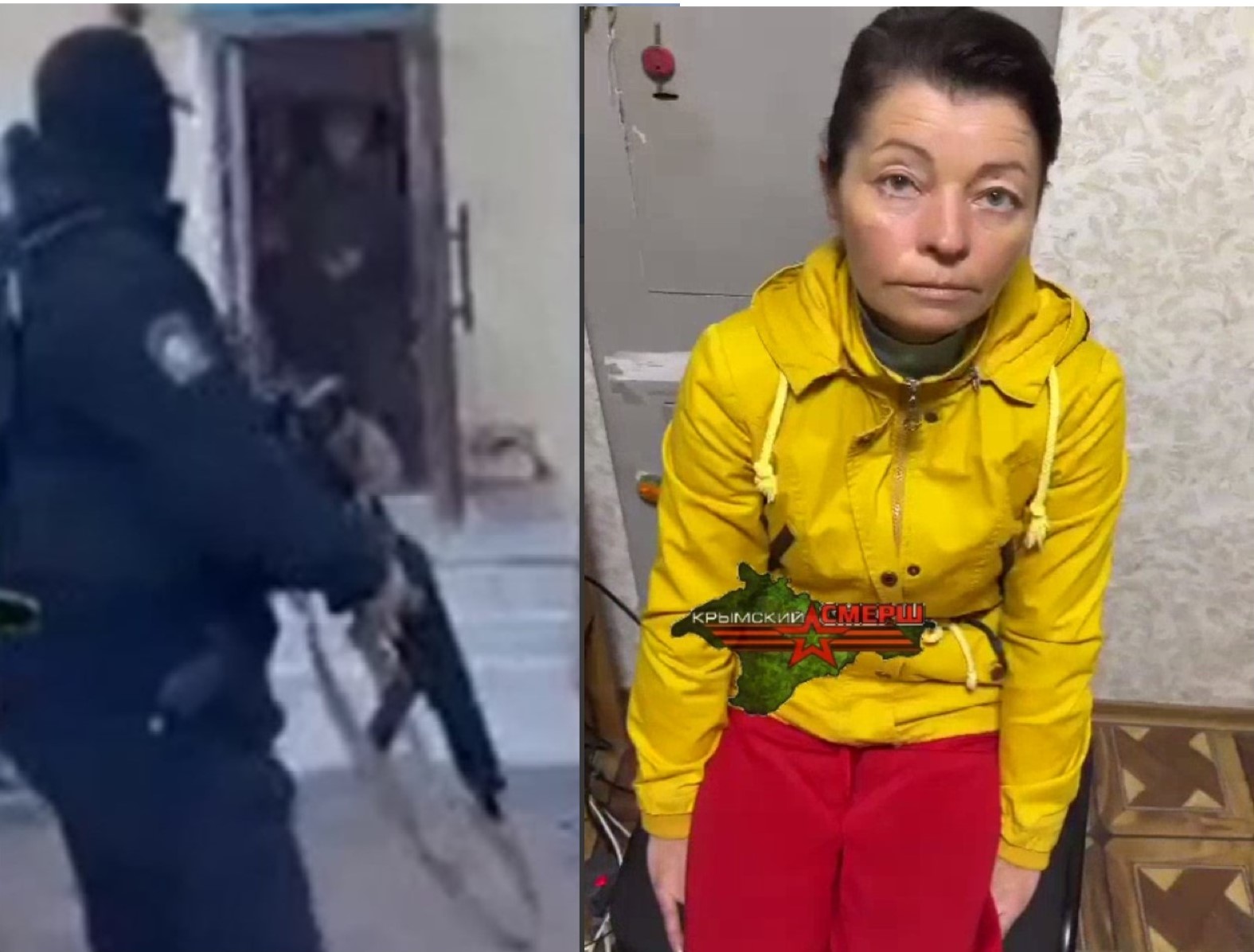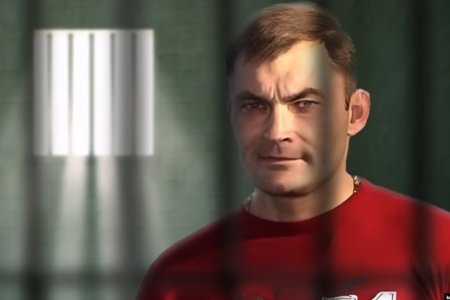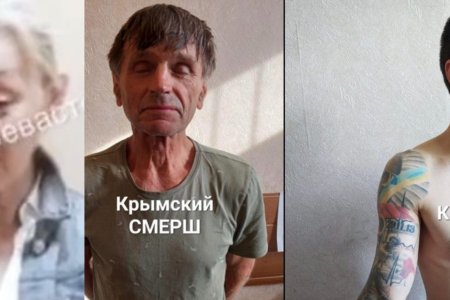
Since the beginning of November, the Crimean occupation ‘enforcement bodies’ have carried out at least two armed raids, aggressively detaining Ukrainian women accused only in connection with posts on social media. The prosecutions became known because of videos posted by notorious collaborator Aleksandr Talipov, including one in which the victim was clearly forced into ‘expressing repentance’.
On 2 November, Talipov posted two videos about the arrest of Lilia Mantserova from Feodosia over video clips of two Ukrainian songs, whose names make their content clear: Fortress Bakhmut and “To the Heroes”. This was very much a stunt for the cameras with four masked men brandishing machine guns very roughly pushing about a middle-aged man, probably Lilia Mantserova’s husband, before bursting into a room behind the shop and forcibly detaining Mantserova, a woman who looks in her fifties.
The second video shows Lilia Mantserova facing the camera and ‘expressing repentance’ and promising not to do it again. It is clear that she is saying this under duress, with the only question mark really being whether her captors used physical force or threats.
In fact, the videos were shown on the same day that one administrative prosecution was passed to the occupation ‘court’ in Feodosia. Mantserova was charged under Article 20.3 § 1 of Russia’s code of administrative offences, with the trident seen on one of the video clips claimed by the so-called ‘specialist’ to be a symbol of the “Organization of Ukrainian Nationalists insurgent army”. The fact that Russia has banned both OUN and the insurgent army UPA can, and frequently, is used by occupation ‘courts’ as justification for finding people guilty of Article 20.3. In this case, Mantserova was jailed for two days.
Unless the armed raid and arrest were much earlier, there is, as yet, nothing on the ‘court’ website about another administrative charge reportedly brought against Mantserova herself and her husband. Both are charged under one of the new ‘offences’ introduced into the Russian administrative and criminal codes within 10 times of Russia’s full-scale invasion of Ukraine. Article 20.3.3 punishes under the administrative code for what is claimed to be ‘discrediting of the Russian armed forces’. There is a criminal code equivalent with this used particularly for ‘repeated’ discrediting. In occupied Crimea, the administrative charge has been laid against people for Ukrainian songs, including the Ukrainian national anthem, the Ukrainian flag or, even just the hashtag #Notowar.
Unless the occupation authorities decide to step up the charges against Mantserova, it is likely that both will receive fines.
On 3 November, Talipov used his CrimeanSMERSH Telegram channel to post another shocking video in which Krystyna Ronzhyna is detained, seemingly merely for running a social media page in Ukrainian.
Both the prosecutions and the videos that Talipov and his ilk post are aimed at terrorizing the population and threatening the consequences they could face for indicating any opposition to Russia’s war against Ukraine or for simply making their identification with Ukraine clear.
Over the last two months, at least three Ukrainians in occupied Crimea have been convicted under the equivalent criminal charge (Article 280.3) of ‘repeated discrediting of Russia’s armed forces). Dmytro Kozlia was sentenced to a year’s imprisonment in a medium security prison colony. Both Danylo Seriohin in September, and Oleh Valieiev in November, received 18-month sentences in a low security prison settlement.
See: Ukrainian jailed for a year in occupied Crimea for 'discrediting Russia's army'



